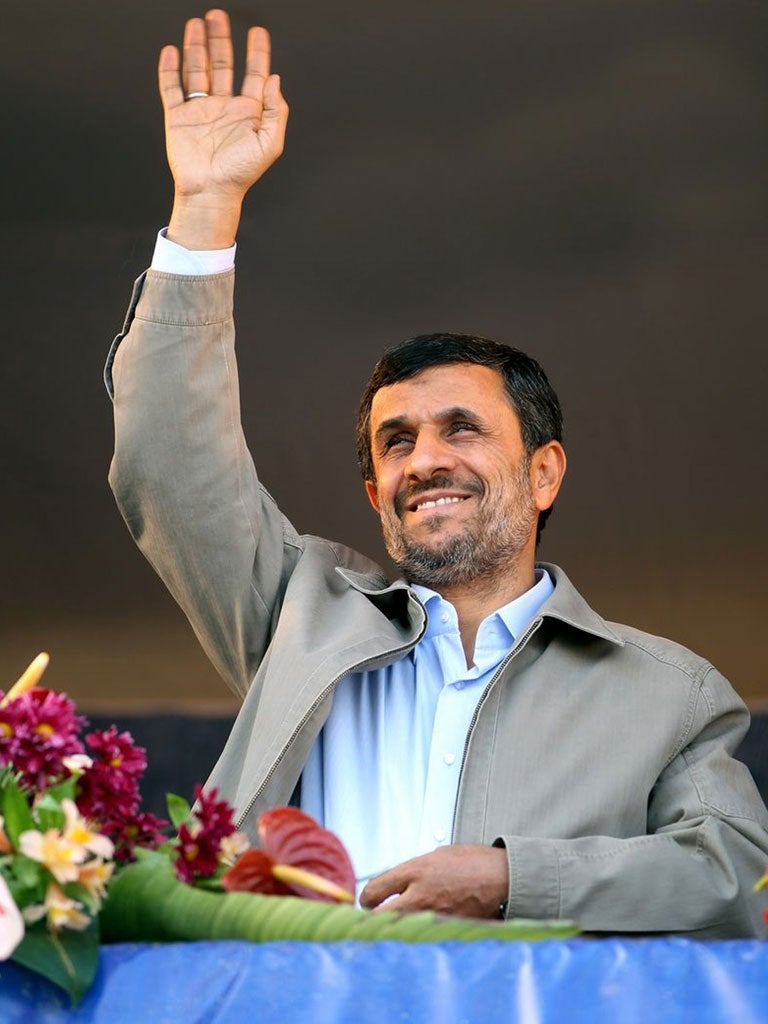Bomb blast outside UK embassy in Bahrain
Analysts say growing tensions between Iran and Britain may be behind the explosion

The deteriorating relations between Britain and Iran appeared to take a new turn yesterday when a bomb exploded outside the UK embassy in Bahrain, an attack some analysts said was probably triggered by tensions between the two countries.
The bomb was placed beneath the wheel of a minibus in a public car park just 50 metres from the embassy in Manama and caused limited damage. No one was injured.
But its timing was significant, coming just days after mobs stormed the British embassy in Tehran. That incident led to the expulsion of Iranian diplomatic staff from London as relations between the two nations hit a new low.
Meanwhile, Tehran yesterday claimed to have shot down a US drone that violated its airspace. The move is likely to create further friction with the West, which is locked in a dispute with President Mahmoud Ahmadinejad's regime over its nuclear programme.
Ramping up the rhetoric last night, the official Iranian state news agency IRNA quoted an unnamed military official as saying "Iranian armed forces are fully ready to counter any aggression". The report said the "slightly damaged" RQ-170 Sentinel spy plane was now in Iranian hands. A US official said the US had "absolutely no indication" the drone was shot down.
Bahrain, which has regularly blamed Iran for the uprising of its Shia majority against its Sunni rulers, was quick to hint at Iranian involvement in yesterday's explosion.
The interior ministry made a reference to "Iranian incitement" on its Twitter feed. The Foreign Office in London declined to comment on the cause of the blast.
The Bahrain Independent Commission of Inquiry, led by a United Nations war-crimes expert, Cherif Bassiouni, was set up to investigate human-rights abuses during the government's crackdown on protesters after the uprising in February. The commission said there was no evidence of Iranian involvement in the country's uprising when it presented its findings earlier this month.
Shia leaders in Bahrain have denied any links to Iran.
Michael Stephens, a Bahrain expert at the Royal United Services Institute, has been researching Iranian involvement in the uprising and has failed to find any links. He said it was very unlikely Tehran was directly involved in yesterday's attack due to the poor execution of the blast.
He said the attack was most likely by a rogue Bahraini Shia "hothead" stirred up by recent events. "There are some very small elements of the Bahraini Shia who are loyal to Iran and it's not implausible that this is someone genuinely disenchanted about what has been happening between Britain and Iran," he said.
An interior ministry spokesman said: "Fragments were found up to 32 metres away from the explosion site and the blast also created a hole with a diameter of around 30cm under the driver's side of the vehicle." The spokesman also said an investigation is underway.
Iran's foreign ministry has blamed students for the attack on the British embassy in Tehran last Tuesday. But UK Foreign Secretary William Hague has said there must have been "some degree of regime consent" in the incident and has called for more isolation of the regime in Tehran.
Yesterday's blast coincided with Ashura, a Shia religious festival that mourns the martyrdom of Hussain, grandson of the Prophet Mohamed. "It's a very emotive festival and it's quite possible that someone has been whipped into a bit of a state," Stephens said. The Bahraini government had heightened security in the run-up to the festival amid fears of violence.
l Iran has warned that any move to block its oil exports would double crude prices with devastating consequences to the fragile global economy.
Join our commenting forum
Join thought-provoking conversations, follow other Independent readers and see their replies
Comments
Bookmark popover
Removed from bookmarks